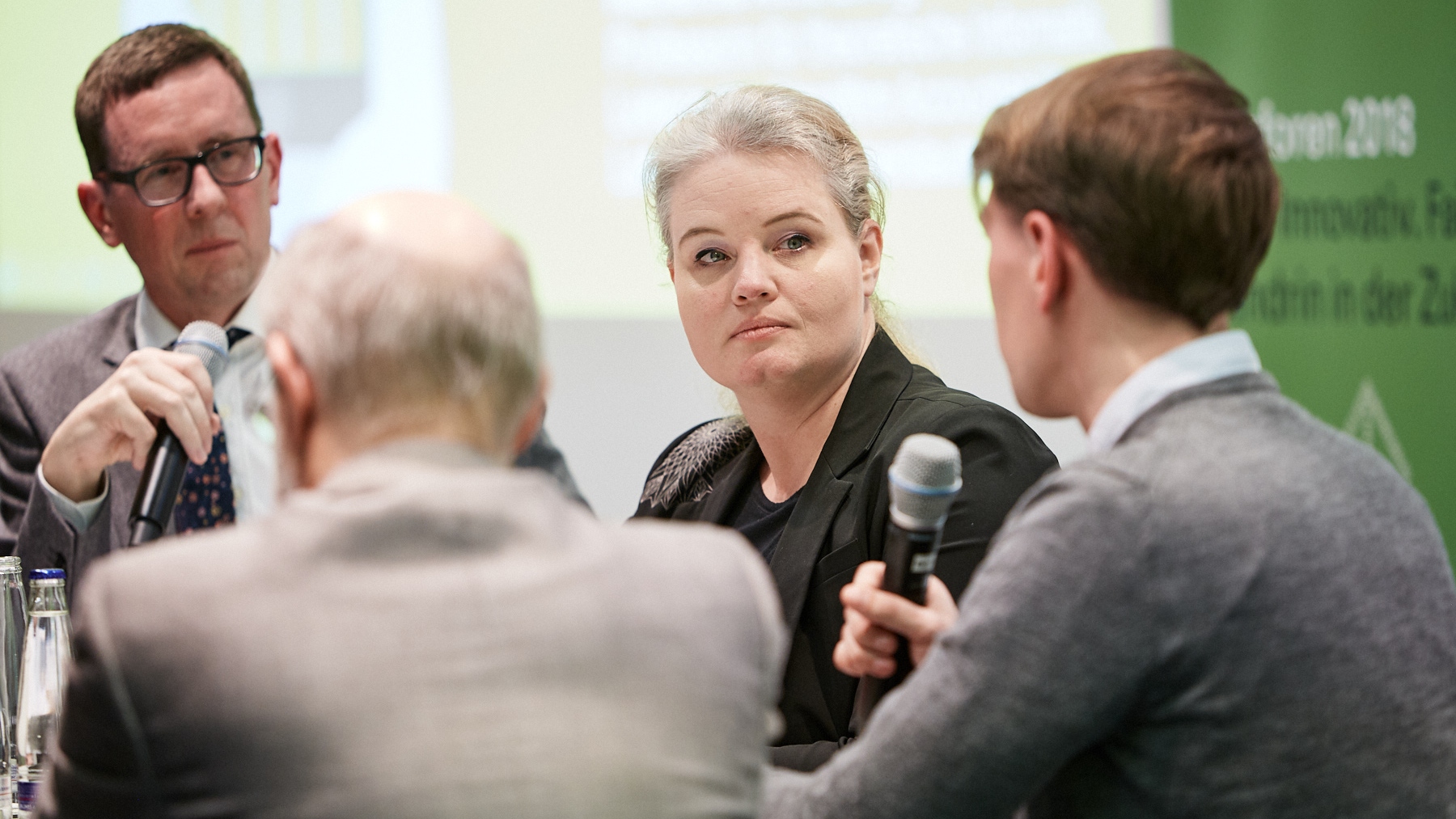
Digital. Innovative. Fair? The future on our doorsteps
Dialogue Forum, 23 January 2018
properties.trackTitle
properties.trackSubtitle
The digital revolution is changing our everyday lives. Robots with artificial intelligence are doing our work for us, while algorithms are analysing and controlling our behaviour. What will the world of tomorrow be like and what risks and opportunities will it present? The 2018 dialogue forum series "Digital. Innovative. Fair? - The future on our doorsteps" will look for answers to these questions.

Algorithms are discriminatory too
Katharina Anna Zweig, Professor of Computer Science, explains why such fears are not unfounded. It’s fact that the algorithms which organize our digital world are more than just useful tools to identify carcinogenic biomolecules from a mass of data, for example. "In the USA, algorithms are already being used to calculate the probability of offender recidivism," she points out. The problem is that algorithms, far from being as objective as we would like to think, sometimes make racist judgements. "If you have discrimination as the input, you have discrimination as the output," is how Professor Zweig sums it up. In other words, algorithms adopt prejudices if they are fed with the wrong data, thus bolstering the unfairness in the world.
"Digitalisation is leading to an algorithm dictatorship,” warns physicist, philosopher and science journalist, Professor Harald Lesch. Decisions are no longer being taken by people based on their experience, but by machines without us knowing the basis on which they arrive at the result. Lesch is critical of the frequent calls from politicians and business people for more digitalisation: "We know too little about what happens at lightning speed in signal processing systems, or what happens to the data and where it goes, to be able to assess the risks properly," he says. A further problem he perceives is that people are surrendering themselves to a technology that treats us like criminals. "In the past, profiles and electronic shackles were only used for dangerous criminals. But today we have all electronic shackles."
Digital living space requires regulation
The next stage in digitalisation is the development of artificial intelligence. Thanks to continuous evaluation of data streams, algorithms are adapting better and better to needs, and learning as they do so. The crucial question is whose interests are considered first. Those of consumers, the internet companies, or the interests of society? Because the underlying technology is no longer fully transparent, Lesch believes legislation is required to regulate the digital living space.
"We are still a long way from genuine artificial intelligence," says Zweig. She is optimistic that the challenges can be mastered. She points out that people have always had reservations about new technologies. Troublesome developments could be handled by an algorithm inspection agency. At the same time, she believes there will always be situations where we need to kick back, whether as employees or consumers. "We should not be looking for terrorists using algorithms either. That just doesn’t work," she says.
Brühl agrees that there are tools to bring digitalisation back on track. But the problem is not that algorithms are all-powerful, but that black boxes are involved. Particularly in Germany and Europe, where concerns about digitalisation are more widespread than, say, in the USA or Asia, there are data protection laws that already place strict requirements on companies today. “And we have anti-trust laws,” he reminds us, "which allow us to question whether WhatsApp and Instagram should belong to Facebook."
More highly qualified jobs
There is no question that digitalisation is having, and will continue to have, an impact on the work environment. Some jobs will disappear, while new ones will be created. The latter will often require a much higher qualification. While it is difficult to predict the scale of change, society will need to find an answer to how to organize the reduced workload. "It is difficult to forecast how many people can be trained for high-level jobs," says Zweig. "I would think there would be intellectual limits". And we should not forget that digital systems, such as augmented reality goggles, can help people with their work, even if they don’t have the best qualifications. And there will always be jobs, in the social sector for example, where people interact with their peers, rather than with computers.
Professor Zweig, as an expert in the analysis of complex networks, believes autonomous driving offers great benefits: "Pedestrians and cyclists will have more power in cities," she says, "because autonomous vehicles drive more carefully." In the immediate digital future, she predicts that voice controls will gradually replace keyboard actions, and that everyday devices will become networked as the Internet of Things develops.
There is no way back from digitalisation. Only international agreements can solve questions such as who owns data, and who can do what with it. But reconciling the different interests is likely to be extremely difficult. Up to now at any rate, politicians have been catching up with developments, instead of shaping them. The USA has a tradition of breaking up cartels. Lesch believes there must be a reason why they are sitting idly by, and watching what is happening in Silicon Valley. And the longer a small number of internet corporations are allowed to dominate the digital world, the more difficult it will be to find effective ways to bring them to heel.
The next dialogue forum will be held on 22 February 2018 on the topic: "Networked, innovative – How poor countries benefit". The focus here will be on how development can be accelerated to improve living conditions using innovative technologies and digitalisation.
31 January 2018